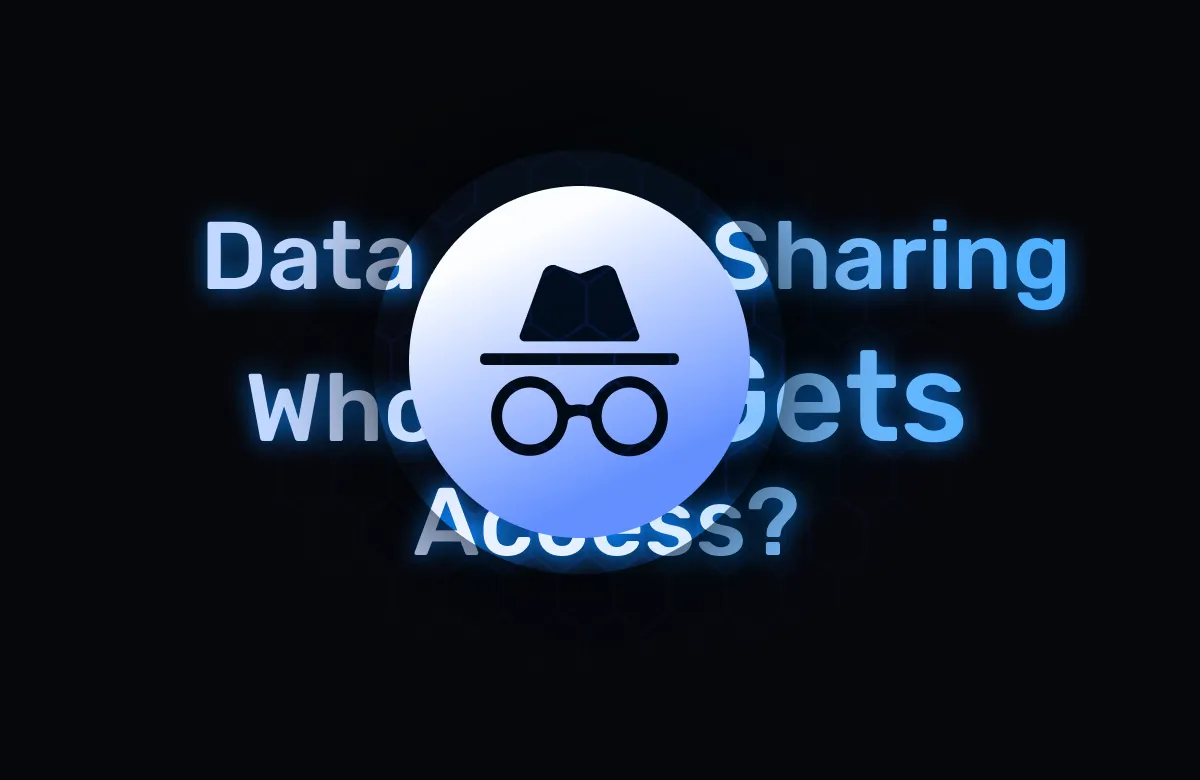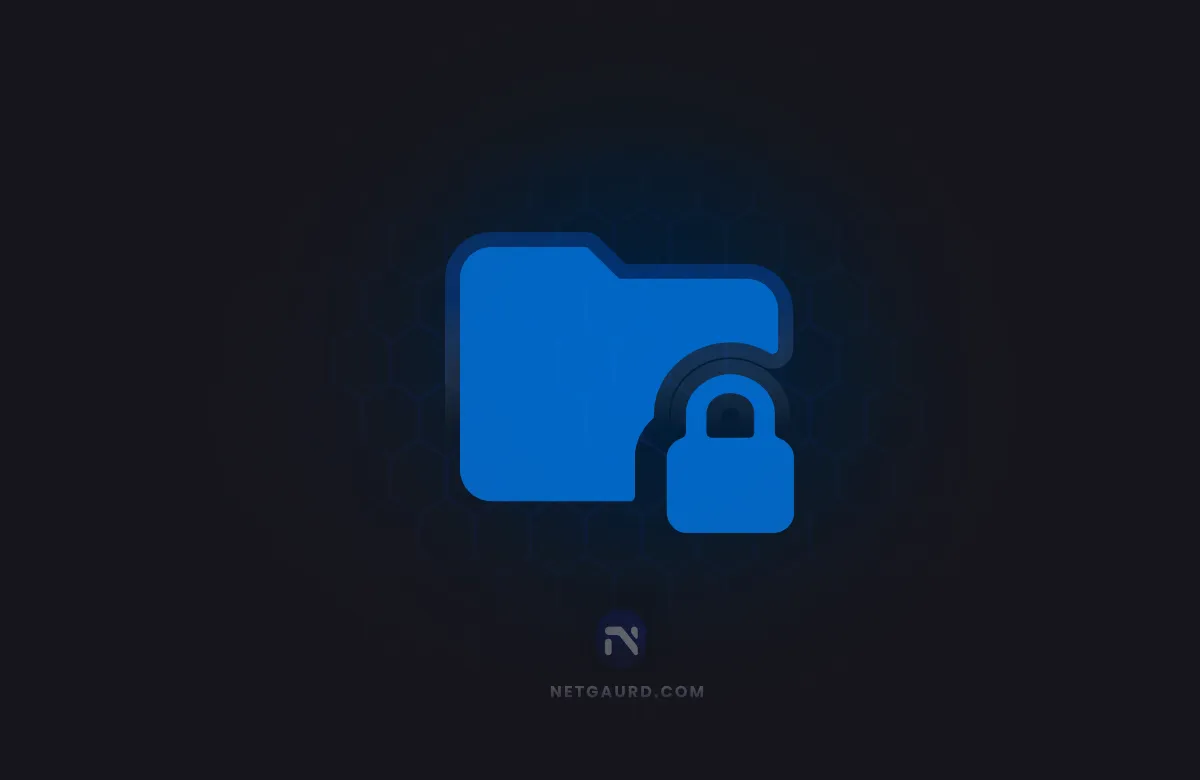Table of Contents
Ever stopped to think, what is online privacy, really? In our hyper-connected world, where we share, shop, and socialize online, understanding this concept is more critical than ever. It’s not just about keeping secrets; it’s about controlling your personal information in the digital realm. Here at Netguard, we believe everyone deserves clarity on their digital rights. This guide dives deep into the meaning of online privacy, why it’s incredibly important, and practical steps you can take to safeguard your digital footprint. Let’s unravel the complexities and empower you to navigate the internet with greater confidence and security.
The term online privacy, often used interchangeably with internet privacy or digital privacy, fundamentally refers to the level of personal privacy protection an individual has while connected to the internet. It encompasses the protection of personally identifiable information (PII), browsing habits, and other private data from being collected, used, and shared without consent or knowledge. Understanding what is online privacy is the first step toward protecting yourself from potential risks like identity theft, unwanted surveillance, and data exploitation.
Why is Online Privacy So Crucial Today?
You might wonder, “Why all the fuss about online privacy?” In an era dominated by data, your personal information has become a valuable commodity. Think about it: every click, search, purchase, and post creates a data point. Companies collect this data for various reasons, from targeted advertising to product development. While some data collection is benign or even helpful (like remembering your login details), unchecked collection and usage pose significant risks.
Here’s why prioritizing your Online Privacy is non-negotiable:
- Protection Against Identity Theft: Exposed personal details (address, date of birth, social security number fragments) can be exploited by criminals.
- Preventing Financial Fraud: Leaked financial information can lead to unauthorized transactions and significant financial loss.
- Avoiding Manipulation: Data profiles built on your online behaviour can be used to influence your opinions, purchasing decisions, and even voting patterns.
- Maintaining Personal Autonomy: Privacy allows you to explore ideas, express opinions, and live your life without constant scrutiny or fear of judgment.
- Securing Personal Safety: Information like your real-time location or daily routines, if fallen into the wrong hands, can pose physical safety risks.
- Building Trust: In relationships, both personal and professional, privacy boundaries are essential. The same applies online; trust erodes when privacy is violated.
Ignoring online privacy is like leaving your front door unlocked. While you might not be robbed immediately, the risk is always there. Understanding what is online privacy helps you install the necessary locks and alarms for your digital life.
Understanding the Core Concepts: What Online Privacy Entails
To truly grasp what is online privacy, we need to break down how your information is handled online. It generally involves three key stages: collection, usage, and sharing.
Data Collection: What Are They Gathering?
Websites, apps, and online services collect a vast amount of data. This can include:
- Personally Identifiable Information (PII): Name, email address, phone number, home address, date of birth, government ID numbers.
- Browsing History: Websites visited, search queries, time spent on pages.
- Location Data: Real-time GPS coordinates, IP address-based location.
- Device Information: Device type, operating system, unique device identifiers.
- Transaction Data: Purchase history, payment information (often partially masked).
- Social Media Activity: Posts, likes, shares, connections, messages.
- Biometric Data: Fingerprints, facial recognition data (increasingly used for device security).
- Cookies and Trackers: Small files placed on your device to track your activity across different websites.
Awareness of what is being collected is fundamental to managing your online privacy.
Data Usage: How is Your Information Used?
Once collected, your data can be used in numerous ways:
- Service Provision: Basic functioning of the app or website (e.g., using your address for shipping).
- Personalization: Customizing content, recommendations, and user experience.
- Targeted Advertising: Showing ads based on your interests, demographics, and behaviour. This is a major driver of the “free” internet model.
- Analytics and Improvement: Understanding user behaviour to improve products and services.
- Research and Development: Using anonymized or aggregated data for broader research.
- Security: Detecting fraud, verifying identity, and securing accounts.
The crucial aspect of online privacy here is transparency and consent regarding these uses.
Data Sharing: Who Gets Access?

This is often where the biggest privacy concerns arise. Your data might be shared with:
- Third-Party Advertisers: Companies that want to show you targeted ads.
- Data Brokers: Companies that aggregate and sell personal data profiles.
- Affiliated Companies: Other businesses under the same corporate umbrella.
- Service Providers: Companies providing essential services like cloud hosting or payment processing.
- Government Agencies: Often through legal requests like subpoenas or warrants.
- Researchers: Typically using anonymized or aggregated data.
Understanding these data flows is key to comprehending the scope of what is online privacy and where potential vulnerabilities lie.
Real-World Examples of Online Privacy Breaches
Sometimes, the best way to understand the importance of online privacy is to see what happens when it goes wrong. Major data breaches have become alarmingly common:
- Social Media Scandals: Instances where user data was improperly harvested and used for political profiling (e.g., Cambridge Analytica).
- Large Retailer Breaches: Hackers gaining access to millions of customer credit card details and personal information.
- Health Data Leaks: Sensitive medical information exposed due to security failures in hospitals or insurance companies.
- Government Database Hacks: Personal data of citizens or government employees stolen, often by state-sponsored actors.
- Smart Device Vulnerabilities: Cases where insecure smart home devices (like cameras or baby monitors) were accessed remotely.
These examples highlight that breaches can affect anyone and underscore the necessity of proactive online privacy measures. It’s not just about abstract concepts; it’s about tangible risks.
Online Privacy vs. Online Security: What’s the Difference?
People often confuse online privacy and online security, but they are distinct yet related concepts. Think of it this way:
Online Security is about protecting your data from unauthorized access (the locks on your digital house). It involves measures like strong passwords, firewalls, antivirus software, and encryption to prevent breaches and cyberattacks.
Online Privacy is about controlling who gets to collect, use, and share your data, even if they access it legitimately (deciding who you invite into your digital house and what they can do there). It involves managing settings, understanding policies, and making informed choices about sharing information.
Here’s a simple comparison:
| Feature | Online Security | Online Privacy |
|---|---|---|
| Goal | Protect data from unauthorized access/theft | Control how personal data is collected, used, and shared |
| Focus | Prevention of breaches, malware, hacking | Management of data permissions and consent |
| Tools/Methods | Passwords, encryption, firewalls, antivirus | Privacy settings, VPNs, reading policies, data minimization |
| Analogy | Locks, alarms, reinforced doors | Deciding who enters, what they see, setting house rules |
You need both strong security and robust privacy practices for comprehensive protection online. Understanding what is online privacy specifically helps you manage the latter aspect effectively.
Practical Steps: How to Protect Your Online Privacy
Okay, enough theory! Now let’s get practical. Protecting your online privacy isn’t about becoming a digital hermit; it’s about adopting smarter habits and utilizing available tools. Here’s how you can start:
1. Secure Your Accounts
- Use Strong, Unique Passwords: Combine upper/lowercase letters, numbers, and symbols. Avoid easily guessable information. Use a password manager to generate and store complex passwords.
- Enable Two-Factor Authentication (2FA): Add an extra layer of security requiring a code from your phone or an app, in addition to your password. Enable it wherever possible (email, banking, social media).
2. Manage Browser Settings & Cookies
- Review Browser Privacy Settings: Most browsers (Chrome, Firefox, Safari, Edge) allow you to block third-party cookies, limit tracking, and send “Do Not Track” requests (though effectiveness varies).
- Clear Cookies and Cache Regularly: Reduces the amount of tracking data stored on your device.
- Consider Privacy-Focused Browsers: Browsers like Brave or DuckDuckGo prioritize blocking trackers by default.
- Use Privacy Extensions: Tools like uBlock Origin (ad blocker) and Privacy Badger (tracker blocker) can significantly enhance your browser’s online privacy.
3. Be Mindful on Social Media
- Adjust Privacy Settings: Limit who can see your posts, profile information, and friend list. Regularly review these settings as platforms update them.
- Think Before You Post: Avoid sharing sensitive personal information like your full birth date, home address, phone number, or real-time location updates. Remember, what goes online often stays online.
- Review App Permissions: Check which third-party apps have access to your social media accounts and revoke permissions for those you don’t use or trust.
4. Use VPNs and Secure Networks
- Use a Virtual Private Network (VPN): A VPN encrypts your internet traffic and masks your IP address, making it harder for websites, ISPs, and potentially snoopers on public Wi-Fi to track your activity. This is crucial for enhancing online privacy, especially on unsecured networks.
- Avoid Public Wi-Fi for Sensitive Tasks: Don’t access banking or enter passwords on public Wi-Fi unless you’re using a VPN.
- Secure Your Home Wi-Fi: Use a strong password (WPA2 or WPA3 encryption) for your home network.
5. Read Privacy Policies (Yes, Really!)
- Understand the Agreement: While often long and complex, try to skim privacy policies for key information: what data is collected, how it’s used, and who it’s shared with. Look for summaries or key sections.
- Exercise Your Rights: Depending on your location, you may have rights to access, correct, or delete your data (see GDPR/CCPA below).
- Opt-Out When Possible: Look for options to opt-out of certain data collection, usage (like targeted advertising), or sharing practices.
Implementing these steps significantly strengthens your control over your online privacy.
Understanding Online Privacy Laws and Your Rights
Governments worldwide are increasingly recognizing the importance of online privacy and enacting legislation to protect citizens. While laws vary, some key regulations have set global precedents:
GDPR: A Global Standard
The General Data Protection Regulation (GDPR), enacted by the European Union in 2018, is one of the most comprehensive data protection laws globally. Even if you’re not in the EU, many international companies apply GDPR standards to all users. Key rights under GDPR include:
- Right to Access: You can request a copy of the personal data a company holds about you.
- Right to Rectification: You can ask for inaccurate data to be corrected.
- Right to Erasure (‘Right to be Forgotten’): You can request deletion of your personal data under certain conditions.
- Right to Restrict Processing: You can limit how your data is used.
- Right to Data Portability: You can obtain and reuse your data for your own purposes across different services.
- Right to Object: You can object to the processing of your data, especially for direct marketing.
Understanding these rights is a powerful aspect of managing your online privacy. For more details, you can visit the official GDPR information portal.
CCPA/CPRA: California’s Lead
The California Consumer Privacy Act (CCPA), later amended and expanded by the California Privacy Rights Act (CPRA), gives California residents significant control over their personal information. Key rights include:
- Right to Know: What personal information is being collected, used, shared, or sold.
- Right to Delete: Request deletion of personal information held by businesses.
- Right to Opt-Out: Direct businesses not to sell or share personal information.
- Right to Correct: Request correction of inaccurate personal information.
- Right to Limit Use of Sensitive PII: Restrict the use and disclosure of sensitive personal data.
These laws demonstrate a growing trend towards empowering individuals in the realm of online privacy.
The Biggest Threats to Your Online Privacy
Being aware of the primary threats helps you stay vigilant:
- Data Brokers: Companies whose entire business model revolves around collecting and selling your personal information, often without your direct knowledge.
- Social Media Platforms: Designed to encourage sharing, often collecting vast amounts of data for targeted advertising and user profiling.
- Internet Service Providers (ISPs): In some regions, ISPs can monitor your browsing activity and potentially sell anonymized data.
- Insecure Websites and Apps: Poorly coded platforms can leak data or be easily compromised.
- Phishing Scams: Attempts to trick you into revealing sensitive information (passwords, credit card numbers).
- Malware and Spyware: Malicious software designed to steal data from your devices.
- Government Surveillance: Mass data collection programs by intelligence agencies.
- Internet of Things (IoT) Devices: Smart home devices often have weak security and privacy controls, potentially collecting audio, video, or usage data.
Understanding these threats reinforces why knowing what is online privacy and how to protect it is so vital.
Summary: Taking Control of Your Digital Life
So, what is online privacy? It’s your right to control your personal information in the digital world. It’s about understanding who collects your data, how it’s used, and who it’s shared with. While the online landscape presents challenges, you are not powerless.
- Online Privacy is Control: It’s about managing your digital footprint.
- It’s Crucial: Protects against identity theft, manipulation, and ensures personal autonomy.
- Privacy vs. Security: Both needed; privacy is about control, security is about protection from unauthorized access.
- Be Proactive: Use strong passwords, 2FA, manage browser settings, be mindful on social media, use VPNs, and understand privacy policies.
- Know Your Rights: Laws like GDPR and CCPA empower you to manage your data.
- Stay Vigilant: Be aware of threats like data brokers, phishing, and insecure devices.
Protecting your online privacy is an ongoing process, not a one-time fix. By implementing the strategies discussed and staying informed, you can significantly reduce your risks and navigate the internet with greater peace of mind. Understanding what is online privacy empowers you to make conscious choices about your digital life.
What are your biggest concerns about online privacy? Have you taken steps to protect yourself? Share your thoughts and experiences in the comments below! We’d love to hear from you. If you found this guide helpful, please consider sharing it with others who might benefit.
Don’t forget to explore other resources on Netguard for more tips on cybersecurity and protecting your digital world!
Is online privacy a human right?
While not always explicitly listed alongside traditional human rights, the right to privacy is recognized in the Universal Declaration of Human Rights (Article 12). Many argue that in the digital age, online privacy is an essential extension of this fundamental right, crucial for freedom of expression, thought, and association.
Can you ever be truly private online?
Achieving 100% absolute privacy online is extremely difficult, if not impossible, due to the nature of internet infrastructure, data collection practices, and potential surveillance. However, by understanding what is online privacy and implementing strong protective measures (like VPNs, secure browsers, careful data sharing), you can significantly enhance your level of privacy and control.
What is the biggest threat to online privacy today?
This is debatable, but many experts point to the pervasive business model of surveillance capitalism as a primary threat. This involves companies collecting vast amounts of personal data, often without full user comprehension, primarily for targeted advertising and behavioural prediction. Data brokers who aggregate and sell this information also pose a significant risk to online privacy.
Does using incognito or private browsing mode protect my privacy?
Partially, but not completely. Incognito/private mode primarily prevents your browser from saving your browsing history, cookies, and site data on your local device. It does NOT hide your activity from websites you visit, your internet service provider (ISP), your employer (if using a work network), or prevent tracking by sophisticated methods. It offers limited online privacy benefits.
How does social media affect online privacy?
Social media platforms thrive on user-generated content and data. They encourage sharing personal information, track user behaviour extensively (both on and off their platform via trackers), and use this data for targeted ads and content algorithms. Over-sharing and lenient privacy settings on social media can significantly compromise your online privacy.

